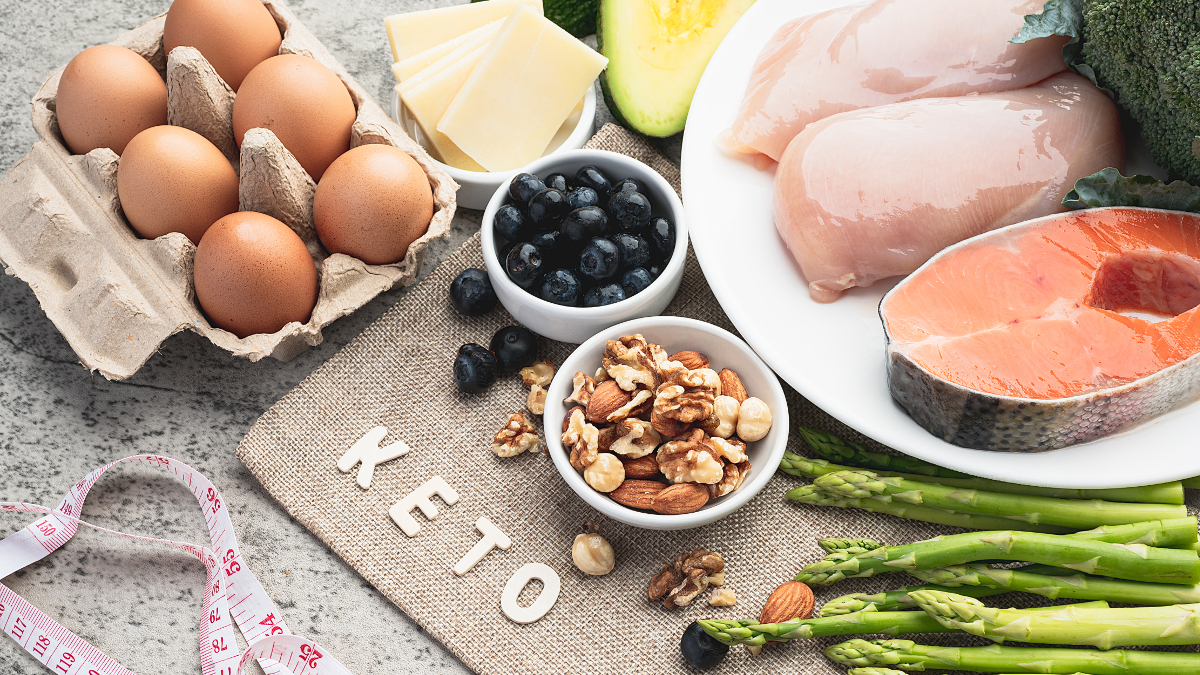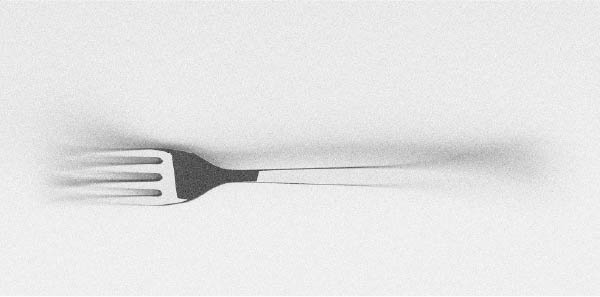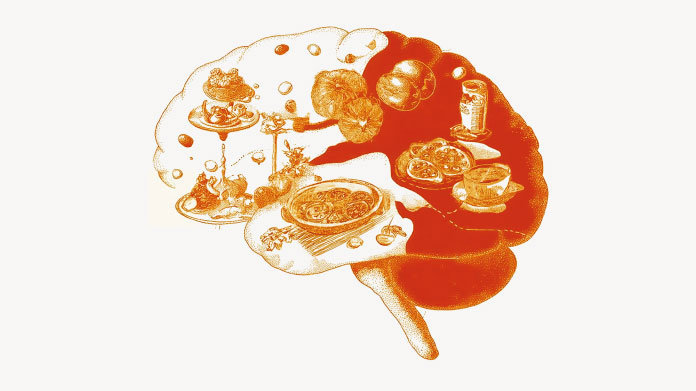Why start a ketogenic, or keto, diet?
The keto diet, high in fat, produces rapid weight loss. Here’s a quick rundown of what you need to know before launching into a diet of this kind.

A very on-trend diet
First appearing in the 1920s, the ketogenic or keto diet was initially associated with benefits for severe epilepsy. But with the advent of effective treatments for this condition, the diet became side-lined in the 1970s. It has recently found itself back in the spotlight due to one of its quite specific effects ...
Ketogenic diet: what’s its purpose?
If the keto diet is famous, it’s because it can lead to significant, and relatively rapid, weight loss. The diet consists of adjusting your intake of fat, sugar and protein. Specifically, you eat a lot of fat (75%), some protein (20%) and very little carbohydrate (5%). The body thus has to find an alternative source of energy to the carbohydrates it normally uses.
The keto diet makes levels of pancreatic hormone fall and those of glucagon rise until a state of ketosis is reached. The liver then produces ketone bodies, which the body will use as its preferred source of energy (1), removing, in the process, sugar (in the liver) and fats (in adipose cells). That’s what produces the weight loss.
The many health benefits of the keto diet
Weight loss and the removal of stored fat and sugar have a beneficial effect on metabolism. Reductions in hypercholesterolaemia, blood pressure, etc. Cardiovascular indicators all improve as a result of the keto diet (2). Diabetics see their pancreatic hormone resistance decrease (3). Some studies have even shown that the keto diet can mean diabetic patients are able to stop their drug treatment (4).
Some scientists believe the keto diet also offers the same promise in the case of certain cancers (5), by reducing tumor size and restricting the formation of vessels. Results are equally encouraging in relation to neurodegenerative diseases (such as Alzheimer’s and Parkinson’s) (6).
Who is the keto diet for?
If you want tolose a substantial amount of weight, the keto diet will help restore healthy cardiovascular indicators. It’s also frequently recommended for sports enthusiasts , who can use it to improve their performance.
It’s important to emphasise that the keto diet requires long-term dietary changes. It’s not a temporary fix: it has to be maintained over time in order to see continued benefits.
It’s also worth noting if you want to start a keto diet, that it can produce some unpleasant side effects during the first few weeks: bad breath, headaches, nausea … What’s more, it’s quite a strict diet and is therefore not that easy to follow over the long-term. Eating with friends in a restaurant, for example, can quickly become hard to manage. You should therefore be fully informed and committed before launching into it.
The keto diet: how to apply it on a daily basis
The rules of the keto diet are clear: it’s all about eating a lot of fat and very little sugar. But what does that mean in practice?
The foods you should prioritise include:
- meat;
- oily fish (salmon, tuna, sardines …) ;
- eggs;
- dairy products (full-fat);
- vegetable oils;
- avocados;
- dried fruit and seeds;
- low-carb vegetables, such as green vegetables.
And those to avoid:
- any food high in added sugar (biscuits, fizzy drinks, cakes, processed foods …);
- fruit and fruit juices;
- honey, jam;
- pulses (lentils, white beans, kidney beans, broad beans, chickpeas…) ;
- cereals and cereal products : pasta, rice, quinoa, corn, bread, etc. ;
- root vegetables (carrots, parsnips, turnips, potatoes …) ;
- alcohol;
- low-sugar products high in sweeteners …
After a while, it becomes easier to navigate your way through the ketogenic maze. But to start with, concentrate on reading the labels of the products you buy and try to identify foods with the least amount of carbohydrate.
Before starting the keto diet, make sure you consult a qualified nutritionist or dietitian for advice. Some dietary supplements, such as MCT OIL Pure C8 (a coconut-based MCT oil, highly concentrated in caprylic acid), can also help you stick to the keto diet and increase its effects.
Though it might seem unbalanced, the keto diet has proved to be effective in terms of achieving weight loss. It has also shown particular promise in the management of certain chronic diseases. These are significant benefits which may encourage you to ‘make the leap’ – if you have the desire – and ability – to follow it!
References
- Freeman, John Mark, Eric H Kossoff and Adam L Hartman. “The ketogenic diet: one decade later.” Pediatrics 119 3 (2007): 535-43.
- Santos FL, Esteves SS, da Costa Pereira A, Yancy WS Jr, Nunes JP. Systematic review and meta-analysis of clinical trials of the effects of low carbohydrate diets on cardiovascular risk factors. Obes Rev. 2012 Nov;13(11):1048-66.
- Yancy WS Jr, Foy M, Chalecki AM, Vernon MC, Westman EC. A low-carbohydrate, ketogenic diet to treat type 2 diabetes. Nutr Metab (Lond). 2005 Dec 1;2:34.
- Zhou W, Mukherjee P, Kiebish MA, Markis WT, Mantis JG, Seyfried TN. The calorically restricted ketogenic diet, an effective alternative therapy for malignant brain cancer. Nutr Metab (Lond). 2007 Feb 21;4:5.
- Gasior M, Rogawski MA, Hartman AL. Neuroprotective and disease-modifying effects of the ketogenic diet. Behav Pharmacol. 2006;17(5-6):431–439. doi:10.1097/00008877-200609000-00009
Keywords
3 Days
Order was shipped on time and packaged…Wonderful Jobs!
Order was shipped on time and packaged excellently.
DMHoge
9 Days
great products and prices
great products and prices
Marie
15 Days
Easy to navigate site
Easy to navigate site, had what I was searching for, good price. easy order-check out
James Tucker
21 Days
My skin is clearing up nicely!
Pretty good for my skin so far.
Christian
23 Days
The new packaging is excellent
The new packaging is excellent - finally! No more squashed boxes and torn envelopes.
GORAN
24 Days
Great Product
Great Product
Larry Garrett
29 Days
Quick shipping
Quick shipping; good price. No issues!
Mary McCarty
30 Days
Thr product is very good and is helping…
Thr product is very good and is helping me on my health. Then is always on time
LUGO Luz
33 Days
Buying was fine
Buying was fine. I had problems with the website not recognizing my login info, and had to call to get it fixed. Other than that, everything was good.
David S. Clark
33 Days
Your super maca and super ginseng are…phenomenal
Your super maca and super ginseng are phenomenal supplements that compliment each other when taking them together. Fantastic feeling of well-being and lots of mid day energy without the crash.
Keith Mason
36 Days
I have had amazing results with every…
I have had amazing results with every supplement I've purchased. I am extremely satisfied with this company
kirstin Torres
36 Days
Fine products
Fine products . They are on the leading edge of online supplements. The only issue -so far-is they sometime run out of subscription items.
Jason Argos
38 Days
The ordering process is very user…
The ordering process is very user friendly and the products always come in a timely manner.
CARTER Rhonda
39 Days
The price for Dr
The price for Dr. Pero's AC-11 is reasonable and in line with his views. (my former colleague). Keep it pure.
CAMPBELL Clayton
42 Days
Right on every time.
Right on every time.
Arthur Nicholas




